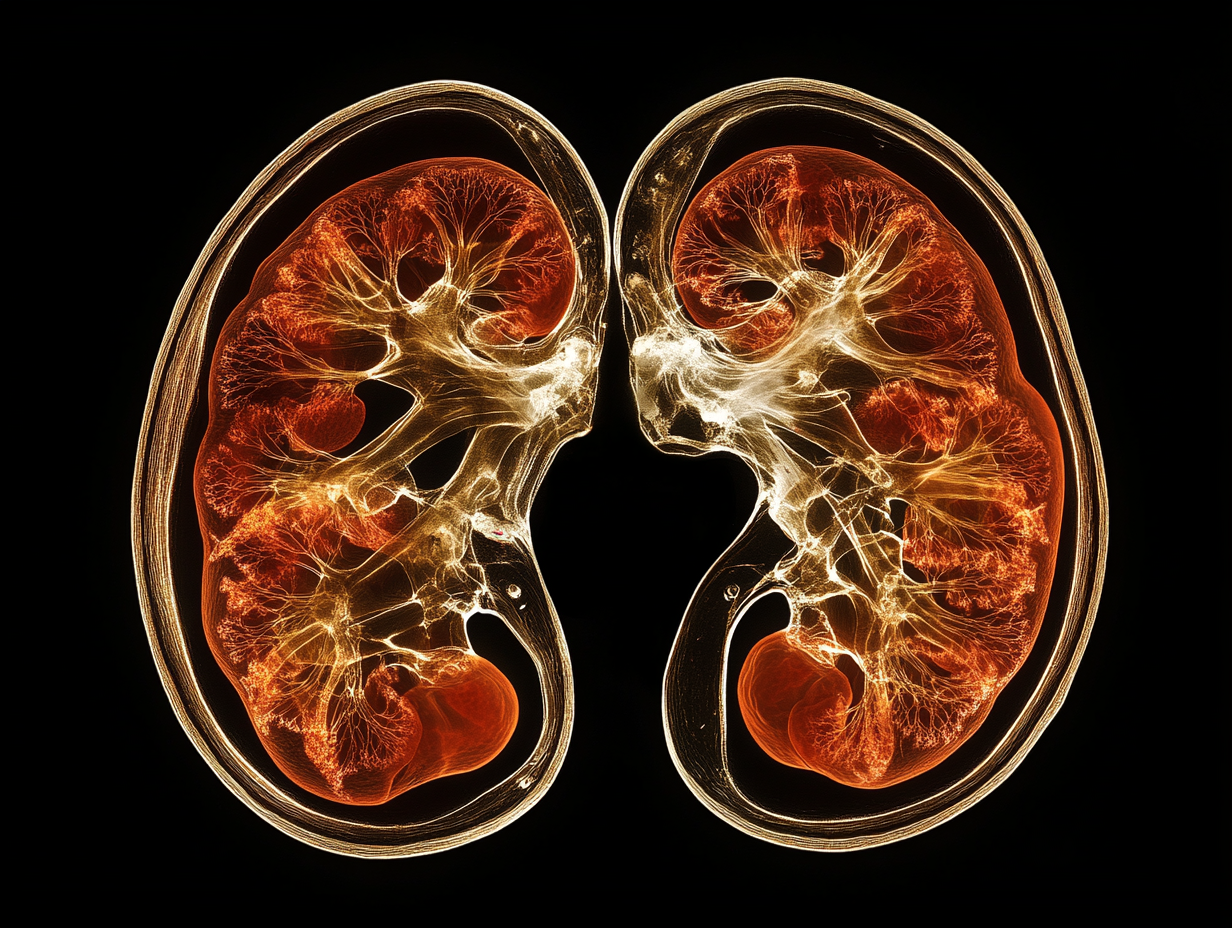Section 1: Understanding Kidney Function
Anatomy and Physiology of the Kidneys
The kidneys are remarkable organs, each roughly the size of a fist, located on either side of the spine in the lower back. They consist of approximately one million filtering units known as nephrons. Each nephron is composed of a renal corpuscle and renal tubules, where blood filtration occurs.
- Filtering Mechanism: The kidneys filter blood through a complex process that begins in the glomerulus, a network of tiny blood vessels. Here, waste products and excess substances are separated from the blood, forming urine, which is then transported through the renal tubules for further processing and concentration before being excreted.
- Homeostatic Functions: Beyond waste removal, the kidneys regulate blood pressure through the renin-angiotensin-aldosterone system, balance electrolytes (like sodium, potassium, and calcium), and maintain acid-base homeostasis, ensuring that the body’s internal environment remains stable despite external changes.
- Impact of Impaired Function: When kidney function declines, waste products accumulate in the bloodstream, leading to potential health issues such as hypertension, anemia, weak bones, and nerve damage. This underscores the importance of understanding kidney health and function.
Common Kidney Conditions
Several conditions can affect kidney function, leading to serious health complications:
- Chronic Kidney Disease (CKD): CKD is a progressive loss of kidney function over time. Risk factors include diabetes, hypertension, age, and a family history of kidney disease. Symptoms may not be evident until the later stages, making regular monitoring essential.
- Acute Kidney Injury (AKI): Unlike CKD, AKI occurs suddenly, often as a result of an injury, medication, or severe dehydration. It can be reversible if addressed promptly, but it requires immediate medical attention to prevent lasting damage.
- Symptoms of Kidney Dysfunction: Individuals with kidney problems may experience fatigue, swelling in the legs and ankles, changes in urination patterns (such as increased frequency or dark urine), and persistent itching. Recognizing these symptoms early can lead to timely medical intervention.
Section 2: The Importance of Blood Testing
Types of Blood Tests for Kidney Function
Regular blood testing is vital for assessing kidney health. Key tests include:
- Creatinine Test: This test measures the level of creatinine, a waste product produced from muscle metabolism. Elevated creatinine levels may indicate impaired kidney function, with normal values typically ranging between 60-110 micromoles per liter (µmol/L) in adults.
- Blood Urea Nitrogen (BUN): BUN measures the amount of nitrogen in the blood that comes from the waste product urea. Normal BUN levels typically range from 2.5 to 7.1 millimoles per liter (mmol/L). High levels may indicate kidney dysfunction or dehydration.
- Estimated Glomerular Filtration Rate (eGFR): This calculation estimates how well the kidneys filter blood. An eGFR below 60 mL/min/1.73 m² indicates potential kidney impairment, while a reading below 15 mL/min may suggest kidney failure.
- Electrolyte Panels: Monitoring levels of electrolytes such as sodium, potassium, and phosphate is crucial, as imbalances can signal kidney problems and affect overall health.
How Blood Tests Help in Monitoring Kidney Health
Blood tests play a pivotal role in kidney health management:
- Early Detection: Regular blood testing can help identify kidney issues before symptoms appear, allowing for early intervention and better outcomes.
- Tracking Progression: By comparing test results over time, healthcare providers can monitor the progression of kidney disease, assess the effectiveness of treatments, and make necessary adjustments.
- Personalized Treatment Plans: Blood test results guide healthcare providers in tailoring treatment plans to the individual needs of patients, ensuring optimal management of kidney health.
Section 3: Testing Frequency Recommendations
General Guidelines for Blood Testing
Understanding how often to get tested is crucial for maintaining kidney health:
- Normal Kidney Function: Individuals with normal kidney function are generally advised to have their kidney function tested annually.
- At-Risk Populations: Those with risk factors such as diabetes or hypertension may benefit from bi-annual testing to ensure early detection of potential issues.
Adjustments Based on Health Status
The frequency of blood tests may need to be adjusted based on health status:
- Existing Kidney Disease: Individuals diagnosed with CKD or AKI may require more frequent testing, often quarterly, to closely monitor their condition.
- Influencing Factors: Changes in symptoms, medications, or overall health can warrant more frequent testing, and patients should discuss these changes with their healthcare provider.
Role of Healthcare Providers
Regular consultations with healthcare providers are essential for personalized care:
- Personalized Testing Schedules: Healthcare providers can help establish a testing schedule based on individual health needs, ensuring that patients receive the appropriate level of monitoring.
- Education and Support: Healthcare teams play a critical role in educating patients about kidney health, promoting awareness of the importance of regular blood testing, and addressing any concerns.
Section 4: Lifestyle Considerations for Kidney Health
Diet and Nutrition
A healthy diet is vital for kidney health:
- Kidney-Friendly Foods: Incorporating fruits, vegetables, and whole grains while limiting processed foods can support kidney function.
- Hydration: Staying hydrated is crucial, but individuals with kidney disease may need to follow specific fluid intake guidelines. Managing sodium and protein intake is also essential for kidney health.
Physical Activity
Regular exercise contributes significantly to kidney health. Engaging in physical activity helps maintain a healthy weight, lowers blood pressure, and reduces the risk of kidney disease.
Regular Check-ups and Monitoring
Regular check-ups with healthcare providers and monitoring of other health indicators help ensure a holistic approach to kidney health.
Conclusion
Monitoring kidney function through blood tests is crucial for early detection and management of kidney disease. Understanding the different types of tests, their side effects, and recommended frequencies empowers individuals to take proactive steps in managing their health.
Taking preventive measures and maintaining awareness of kidney health can significantly impact overall well-being, helping to protect against the risks associated with kidney disease.
Disclaimer: This blog post is intended for educational purposes only and should not be taken as medical advice. Always consult your healthcare provider for personal health concerns.
